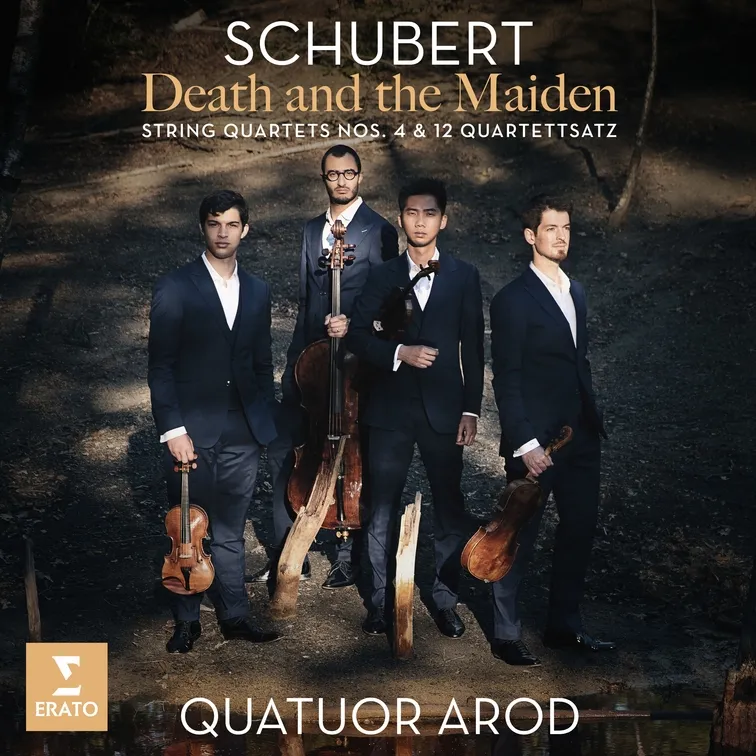
Schubert String Quartet No. 14 in D minor, D810 ‘Death and the Maiden’; Quartettsatz in D minor, D703; String Quartet No. 4 in C, D46 Quatuor Arod Erato 9029517247 71:08 mins
Schubert was very much possessed by death, and saw the skull beneath the skin. Much of this surprisingly original programme reflects that, but his love of life is also reflected not only in the singing consolations throughout but also by the way the sequence ends, with the very personal joy of the 16 year-old’s C major finale.
Quivering humanity has to be at the core of any Schubert interpretation, and it’s above all the Arods’ first violinist Jordan Victoria who finds it, stilling the restlessness in the way he leads in to the Death and the Maiden Quartet’s lyrical countersubject. Some may find the flights too rushed, but that seems to be part of the interpretation. I’ve also heard more scythingly fierce approaches to the Quartet’s wildest moments, but the sophistication here is always interesting.
The Quartettsatz, D703 is equally unquiet and tense but even more generous in its melodic inspirations: another masterpiece. And what personality there is in the early D46! Schubert’s model here is Mozart (the Dissonance Quartet, mostly) rather than Beethoven, but those fascinatingly mined six-note chromatic descents dominating the first movement stop any emergence into C major light until the end. This is the skull without the later works’ silk wrappings. Why doesn’t this quartet figure more in live concerts? At the very least, both the utterly original B flat major Minuetto (with its extraordinary C major trio) and the winsome, utterly Schubertian finale should figure as encores. As in his earlier piano sonatas, Schubert always had a strong personality – and so do these players.
Read more reviews of the latest Schubert recordings here
David Nice